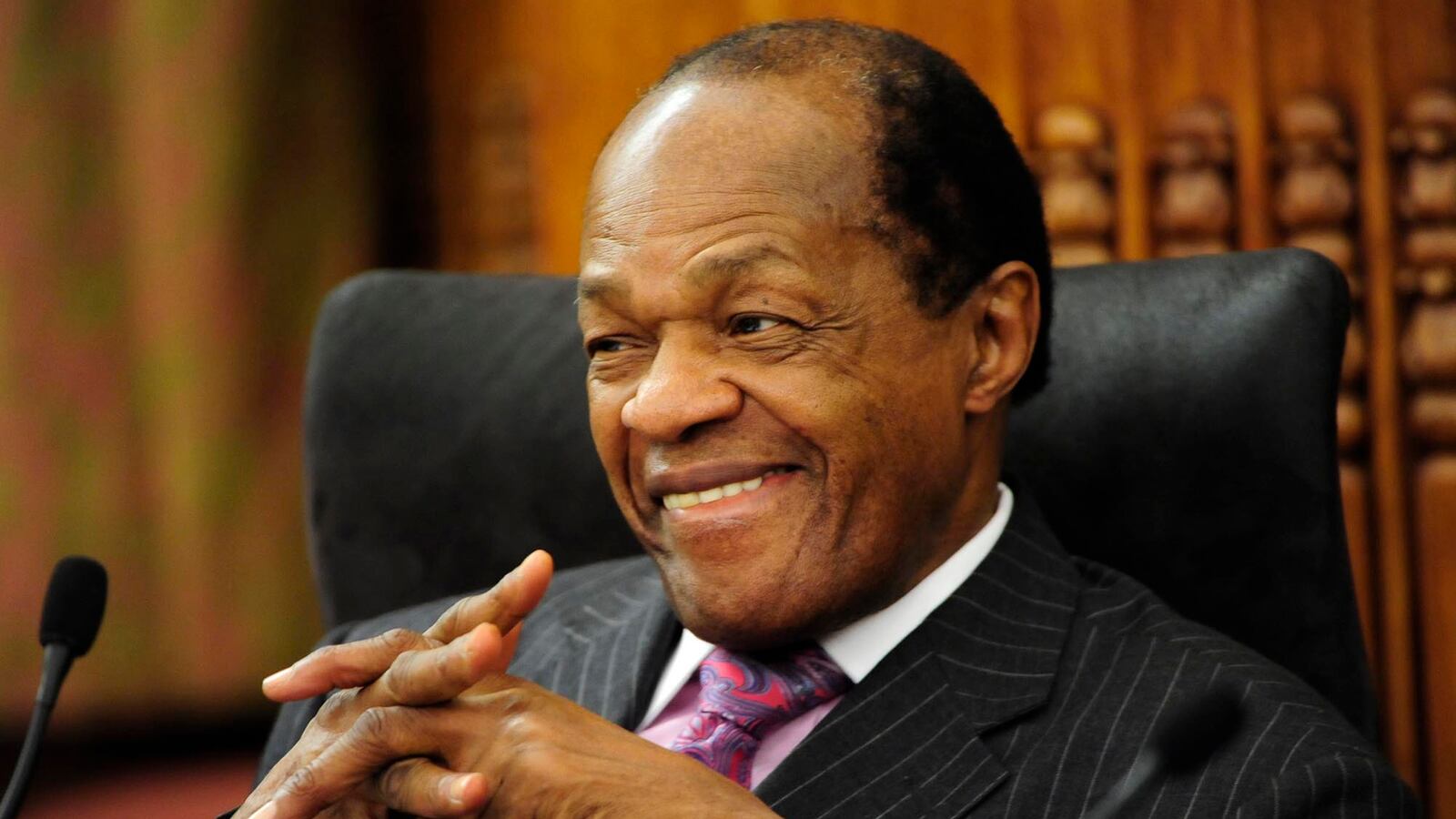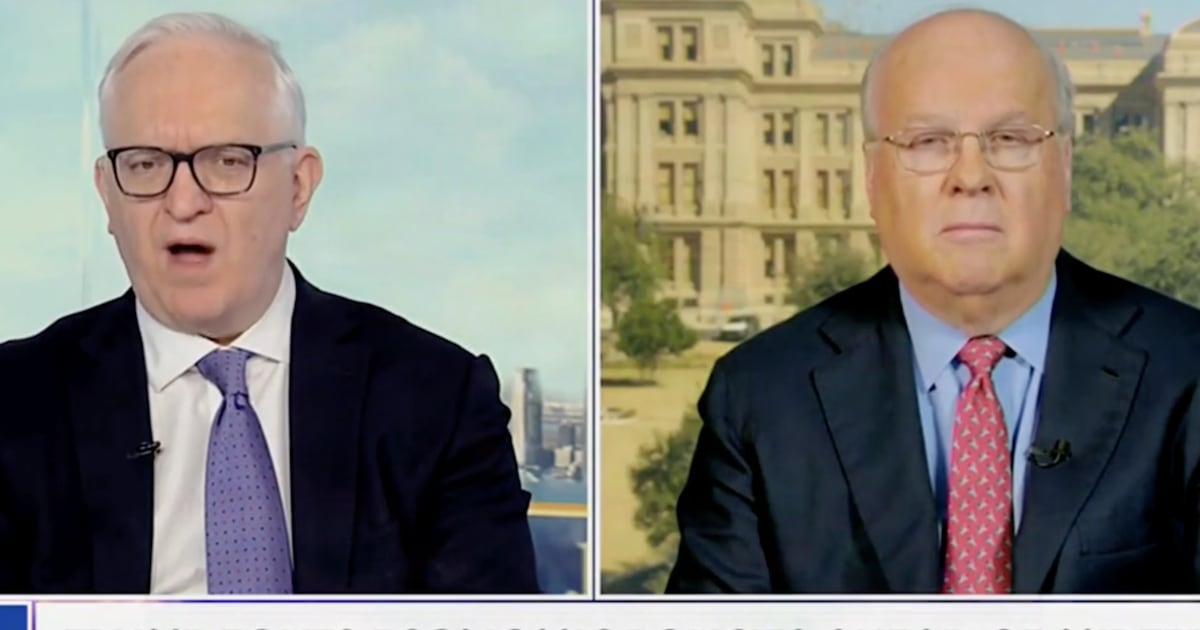Editor's Note—Marion Barry died around midnight on Nov. 22, 2014 at United Medical Center in Washington. The Daily Beast is reposting this interview from June this year.
There was a lull in the media dinner, so Marion Barry--ever the entertainer--put a microphone to his lips and belted out an old blues standard.
“They call it stormy Monday, Tuesday’s just as bad,” Washington, D.C.’s longtime city councilman and four-term mayor crooned huskily, singing the T-Bone Walker classic to 20 startled reporters who had been invited on Friday night to interrogate him about his just-published memoir, Mayor for Life: The Incredible Story of Marion Barry, Jr.
SPEED READ OF MARION BARRY'S MEMOIR
“Wednesday’s worse, Thursday, oh so sad,” Hizzoner continued, adding embellishments along the way, undeterred by the ear-splitting din of mingling singles at downtown Washington’s Look Supper Club. “The eagle flies of Friday--that’s payday!--and Saturday I go out to play…Then come Sunday morning--what do I do?--get down on my knees and pray…Lord have mercy! Lord have mercy on me…If you see my baby, send her back home to me.”
At which Barry put down the mic and basked in a round of applause.
At 78, Washington’s notorious former mayor has survived several lifetimes and near-death experiences in his rise from Itta Bena, Mississippi, where his parents picked cotton, to his status in high cotton as the chief executive of the nation’s capital: Four marriages and four divorces; getting almost fatally shot, inches from his heart, by Hanafi Muslim terrorists staging an attack on City Hall; suffering through diabetes, prostate cancer and a kidney transplant; getting addicted to alcohol and cocaine; becoming the target of an FBI sting in which he was videotaped smoking crack in a hotel room with a former girlfriend, Rasheeda Moore, about whom he coined the T-shirt-ready epigram, “Bitch set me up”; and spending six months in prison, after which he was elected to a fourth term as mayor. (Today, Monday, Barry actually claimed, “Never smoked crack — as simple as that,” appearing on MSNBC’s Daily Rundown. “The federal government never proved there was crack in that pipe. Jurors didn’t believe it.”)
For the past decade since declining to run for a fifth term as mayor, Barry has served as a D.C. councilman representing economically challenged, violence- and drug-plagued Ward 8, Washington’s perennial wrong side of the tracks where he’s a figure of affection and admiration. “I don’t think you can write this, but I know a woman who says Marion Barry could crawl down the street buck-naked, and she would still vote for him,” Barry’s close friend, Charles Moreland, told me at the dinner. “In every adversity there’s opportunity--that’s the lesson of Marion Barry.”
In other words, he’s taken a licking and keeps on ticking.

“I represent courage. I represent tenacity. I represent vision,” Barry told his captive audience, launching into the first of several soliloquies that celebrated certain aspects and diminished other aspects of his contradictory life. “The Bible says, ‘Without vision the people perish.’ You can have the best vision in the world, but you have to have courage to carry it out…That’s Marion Barry in a nutshell.”
Abruptly shifting gears, he added: “I shouldn’t have gone up to that hotel room. I apologized to Rasheeda Moore and her family. I apologized to Christopher, my son, and my wife, Effi, and got married again. And this is a country, a society, of second chances, third chances or fifth chances. When Jesus was asked, how many times can you forgive people, He said, ‘Seventy times seventy.’”
The noise of happy hour was deafening, and a white curtain separating the dinner party from the cavernous lounge did nothing to mute it. Everyone had to pass the microphone to be heard. So Hizzoner certainly could be forgiven for answering a question about D.C.’s controversial “yoga tax”--a local government surcharge on yoga classes--with a lengthy disquisition on how artificial hormones in yogurt causes early puberty in girls, and thus a “yogurt tax” should be considered.
Which is to say: From courage and tenacity to sex and drugs, with a generous dollop of Jesus, it is impossible to contain Marion Barry in a nutshell, and foolish to even try. Here are some highlights of the gospel according to Barry:
AN INTERVIEW WITH MARION BARRY
*”It takes 52 hours” for food’s journey from the mouth to the anus. “We don’t eat healthy anymore…All this greasy food, all these Popeye’s fried chicken, all this junk…The worst killer in the world is sugar, sugar, sugar, sugar, sugar.” Perusing the dinner menu, Barry said: “This looks like a good menu. The salmon, the fish, is healthy…I’m afraid the pasta is not that good for diabetics.” At which point Barry orders the pasta in meat sauce, followed up by Tiramisu. “I got my insulin here,” he explained.
*On reparations for African-Americans: “Black people are the only people who were brought to America in chains, in the bowels of the ships, living in their own feces and all these other kinds of things. They were brought here for free labor for white Southerners…We were promised 40 acres and a mule, and that was a joke, too, because mules can’t reproduce…[After World War II] the German people had reparations. The Marshall Plan was a form of reparations. So if it was good enough for them, what’s wrong with us?”
*On his relationship with the Rev. Jesse Jackson, for whom he gave a rousing presidential nominating speech at the 1984 Democratic Convention, but six years later, when Jackson considered challenging him for mayor, said: “Jesse don’t wanna run nothing but his mouth.” “Jesse wasn’t offended by it. He understood that was political rhetoric.”
*On the controversy over the Washington Redskins: “Dan Snyder [the Redskins owner] went out around the country to Native American reservations trying to buy them off. It’s time to wake up in 2014 and change their name.”
As the dinner drew to a close, I asked Barry if he’s happy with the way his life turned out, or if he’s haunted by regrets.
“We all got regrets,” he told me. “If you’ve lived, you got regrets. If you live, you’ll make a mistake. You’ll make a misjudgment about something. I always think of Frank Sinatra. ‘Regrets, I had a few. I did it my way.’ That’s what’s important.”






